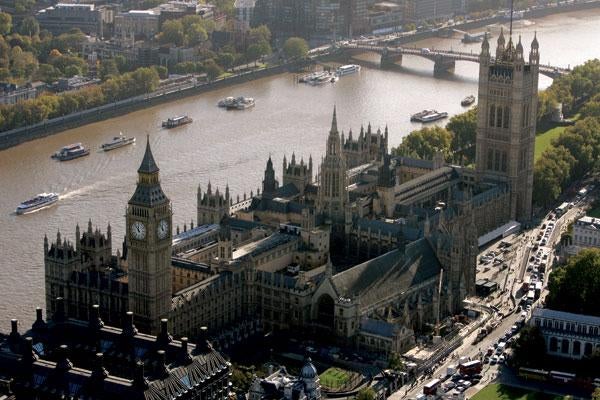
- Privacy committe gives broad support for Lord Hunt’s vision of a new press regulator
- New regulator should have power to impose fines
- Close legal loophole that saw Sunday Herald name Ryan Giggs
- Pre-notification clause should be written into code of practice
A group of MPs and peers has outlined their recommendations for a new-look UK press regulator with the power to impose heavy fines on newspapers that fall foul of the Editors’ Code of Practice.
In a report out today the Joint Committee on Privacy and Injunctions said the regulator should play a leading role in resolving privacy complaints – but for this to happen it needed tougher sanctions than the PCC.
Industry representatives should form a ‘substantial minority’of the complaints-handling body and have considerable experience of newspapers, but to avoid conflict of interest they should not be a full-time employee of any publisher.
It was essential for membership of the new reformed media regulator to cover all major newspaper publishers, the committee found, in reference to Express Newspapers’ withdrawal from the PCC in 2010.
‘It should no longer be possible for a title unilaterally to opt out of regulation with no sanction forthcoming,’it said.
To ensure this the regulator would have powers to impose ‘significant penalties’on publishers who are not members.
It added: ‘For example, major advertisers should require membership as a condition of advertising in news publications, including on blogs.”
The report fell short of recommending statutory backing for the new regulator, instead offering support for reform proposals put forward by PCC chairman Lord Hunt.
Support for Hunt’s plans
Hunt last month put forward a contractual solution to self regulation of the press as an alternative to the statutory regulation which he said many politicians want to impose.
He proposed creating a new more powerful PCC with three arms: one for dealing with complaints, one for enforcing standards and one to mediate disputes and award compensation.
Hunt said publishers would have to sign up to the new body on a five-year rolling contract – warning that a new parliamentary bill to regulate newspapers would “open a Pandora’s box”.
Commenting on Hunt’s proposals, the committee said that assuming they are adopted by all publishers it would recommend the creation of a standing commission comprising members of both Houses of Parliament to scrutinise the process of reform over the coming years.
‘The standing commission will report annually to Parliament on the progress of reform and the effectiveness of the reformed regulator,’he said.
‘The annual report should be debated in both Houses. The standing commission must have the power to call for papers and summon witnesses.’
If the industry failed to establish an independent regulator that commanded public confidence the committee said the Government should ‘seriously consider establishing some form of statutory oversight”.
Today’s report added: ‘This could involve giving Ofcom or another body overall statutory responsibility for press regulation, the day-to-day running of which it could then devolve to a self-regulatory body, in a similar manner to the arrangements for regulating broadcast advertising.”
Legal loophole
Meanwhile, in an attempt to avoid a repeat of a Scottish newspaper legally breaking an injunction obtained in an English court, the committee recommended that interim injunctions granted in one jurisdiction in the UK should become enforceable in Scotland and Ireland.
Last year Scotland’s Sunday Herald named Ryan Giggs has the Premiership footballer alleged to have had an affair with model Imogen Thomas
The paper was able to legally run the story as it had not breached the interim injunction because it did not apply in either Scotland or Northern Ireland.
The UK has three separate legal systems: England and Wales, Northern Ireland and Scotland, and the Civil Jurisdiction and Judgments Act 1982 means an interim measure – including an injunction – obtained in one of the UK’s jurisdictions is not enforceable in the others.
However, final injunctions granted in one jurisdiction in the UK can be enforced in the other jurisdictions.
In today’s report the committee noted that the Attorney General did not think there was a problem with cross-border enforcement ‘because separate legal systems are a fundamental part of the UK’s national make-up, there was no way around the issue”
On the subject of pre-notification, the committee rejected the case for a statutory requirement to pre-notify but said the reformed regulator’s code of practice ‘must include a requirement that journalists should notify the subject of articles that may constitute an intrusion into privacy prior to publication, unless there are compelling reasons not to”.
If a complaint is made and individual was not given prior notification of the story, the paper should be required to explain why.
If they use a public interest defence it should explain ‘how, and with whom, the public interest was established at the time”.
- To contact the Press Gazette newsdesk call 020 7936 6433 or email pged@pressgazette.co.uk
Email pged@pressgazette.co.uk to point out mistakes, provide story tips or send in a letter for publication on our "Letters Page" blog






